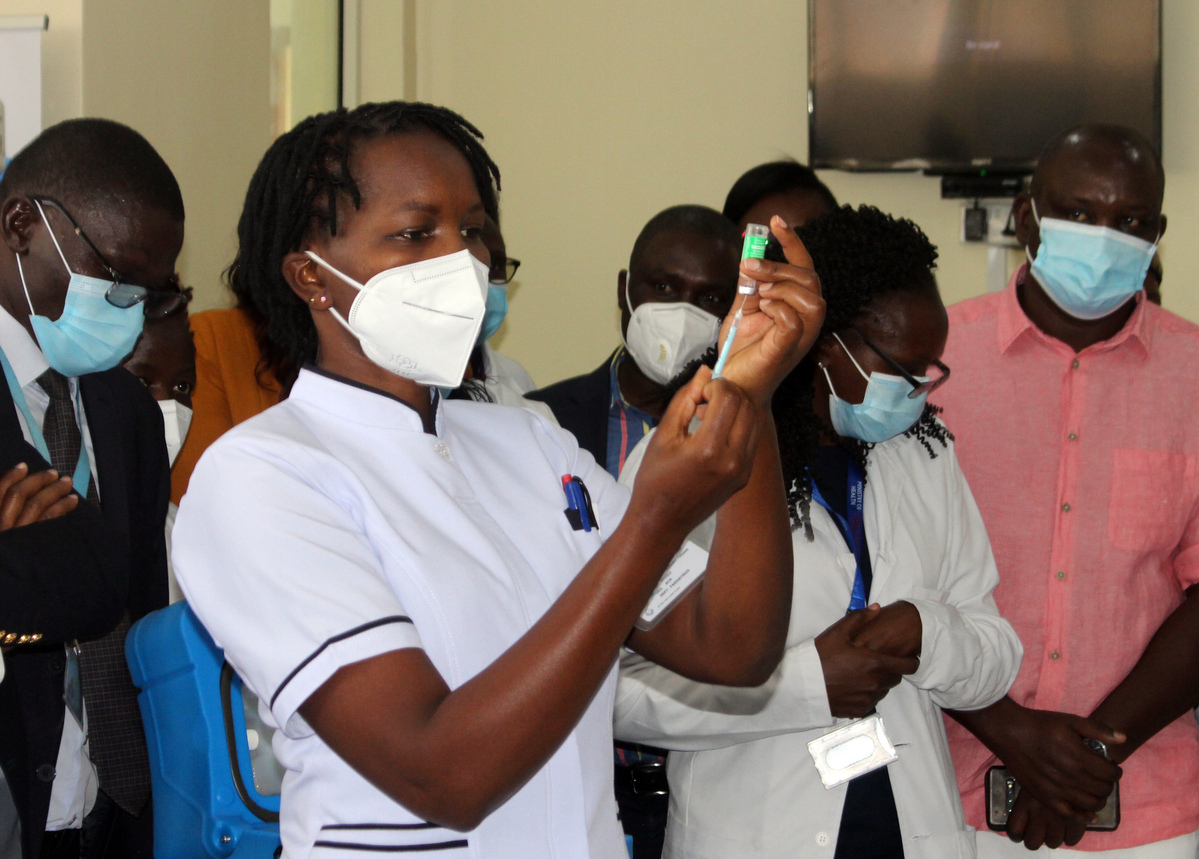Vaccine hesitancy holds back Africa in virus battle


Festus Mutisya, a farmer in Kenya's eastern county of Machakos, passed up on the chance to get vaccinated against COVID-19 out of fear of possible side effects.
"Maybe I will consider taking a shot in three years' time after seeing the effect on those who have been vaccinated," he said. "For now, I will strictly stick to adhering to the health measures of wearing face masks in public places as well as observing hand hygiene and social distancing."
Mutisya said most of his friends, especially those living in rural areas, take a similar view. He blames the vaccine hesitancy on negative information on social media.
In addition to factors such as shortages of the vaccines and the medical workers to administer them, concerns over the jabs have become a major obstacle to efforts to boost vaccination rates in Kenya and many other African countries.
According to the World Health Organization, less than 2 percent of Africans have been vaccinated, compared with a global average of 24 percent.
With low takeup of the vaccines available, some countries have even been forced to destroy stocks that have gone past their use-by dates.
On May 19, the health authorities in Malawi incinerated almost 20,000 expired doses of a vaccine from AstraZeneca. South Sudan has announced plans to discard 59,000 doses for the same reason.
African leaders are calling for united efforts to fight vaccination hesitancy.
Safety reassured
John Nkengasong, the director of Africa Centres for Disease Control and Prevention, urged the authorities in African Union member states to engage with communities in a bid to reassure people of the vaccines' safety.
He also called on governments to work in partnership with the AU healthcare agency for vaccine uptake once the rollout of doses procured through the African Vaccine Acquisition Task Team begins in the first week of August.
"The time to prepare the population is now. We should engage the population, clarify as much as possible and demonstrate that those who have been vaccinated so far have not fallen ill," Nkengasong said.
"That is a continuous battle we have to engage in. We cannot allow misinformation and disinformation to derail our vaccination program in the continent."
Sarah Kinyanjui, the founder of Sheerah the City Builders, an interdenominational women's ministry, said there has been poor communication to the public by the vaccine makers and health ministries.
She said many people are concerned about technical issues to do with the vaccines that have been developed with mRNA formulations, noting that many fear there could be unknown side effects that will manifest months or years later.
According to the University of Missouri Health Care in Columbia in the United States, researchers have been studying and working with mRNA vaccines for decades.
The mRNA vaccines have been studied for use in combating influenza, Zika and rabies. Cancer research has also used mRNA to trigger the immune system to target specific cancer cells.

































